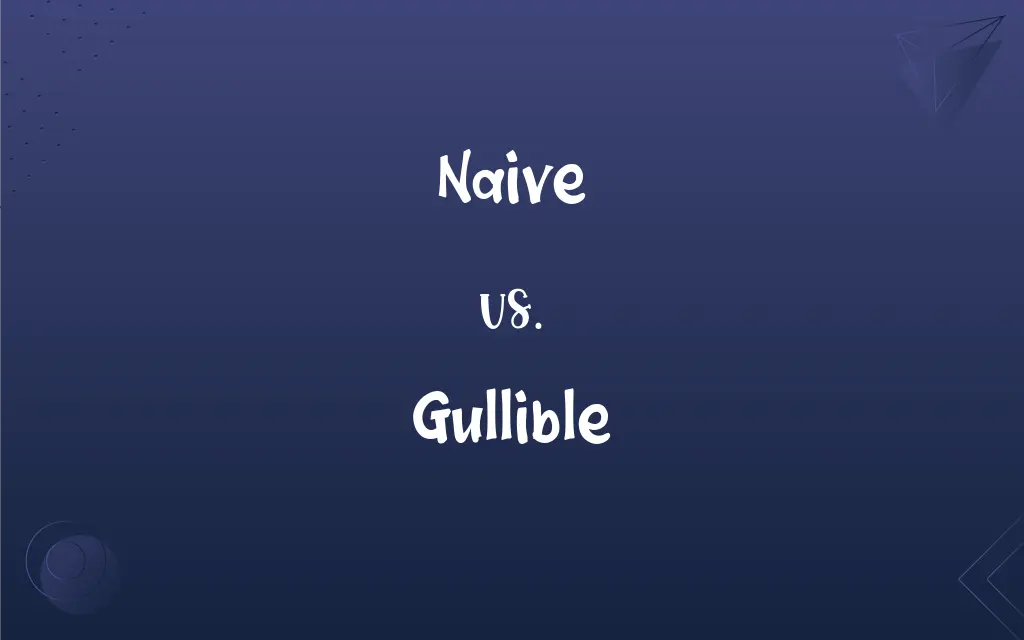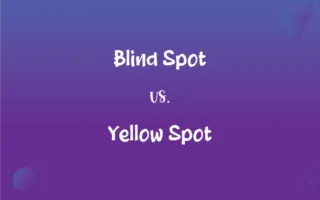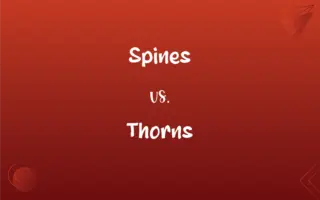Naive vs. Gullible: What's the Difference?
Edited by Aimie Carlson || By Harlon Moss || Updated on October 11, 2023
Naive implies a lack of experience or sophistication, while gullible refers to a readiness to believe others without sufficient evidence.

Key Differences
The term "naive" primarily denotes a lack of experience, sophistication, or judgment. This could stem from a general lack of exposure or understanding of complexities or duplicitous natures. For example, someone might be naive about the harshness of the business world if they’ve never engaged in it. Conversely, "gullible" pertains specifically to an ease in being deceived or tricked because a person is too trusting. Here, it's not merely a lack of experience but a predisposition to believe without critical inquiry.
Within "naive," there exists a realm where innocence or purity overshadows skepticism or wariness. In essence, naive individuals might not always anticipate deceit because their viewpoint may be untarnished or optimistic. "Gullible" individuals, however, may not necessarily operate from a standpoint of purity or innocence but from an overtly trusting disposition, which might make them susceptible to deceit, even when they may know the world can be unscrupulous.
Naive individuals may sometimes stumble into situations unaware due to their unsophisticated worldview, which is not confined to deceit or truthfulness but extends to worldly understanding in general. However, gullible individuals are particularly susceptible in contexts where trust, belief, and truthfulness are at play, making them easy targets for schemes or manipulation, as their propensity to believe others can overshadow rational skepticism or doubt.
"Naive" is often viewed through a slightly softer lens, potentially being seen as a byproduct of a sheltered or unblemished viewpoint, sometimes even attributed to a kind-hearted or unworldly nature. "Gullible," conversely, may carry a slightly more negative connotation, potentially signaling a lack of critical thinking or an excessive trustiness even when caution may be warranted.
Sometimes "naive" and "gullible" may intertwine, as an individual who is naive (lacking worldly experience) might also be gullible (easily deceived). However, they do not mean the same thing and cannot always be used interchangeably. A person can be naive without being gullible and vice versa.
ADVERTISEMENT
Comparison Chart
Definition
Lack of experience and sophistication
Easily deceived or tricked due to excessive trust
Connotation
Often neutral or soft, related to innocence
More negative, associated with lack of critical thinking
Scope
Broad, can pertain to various aspects of life
Specific, primarily linked to belief and deception
Example Situations
Unfamiliarity with the harshness of a circumstance
Believing untrue statements or falling for schemes
Associated Traits
Innocence, optimism
Trustiness, absence of skepticism
ADVERTISEMENT
Naive and Gullible Definitions
Naive
Having a directness or frankness that suggests innocent simplicity.
Her naive questions about the subject caught everyone off guard.
Gullible
Gullible describes someone who is easily fooled or deceived.
The con artist found her to be a gullible target.
Naive
Naive refers to having or showing unaffected simplicity.
Her naive joy at simple things was heartwarming.
Gullible
A trait demonstrating a lack of critical skepticism and possessing an overly trusting disposition.
The gullible investor believed in the too-good-to-be-true scheme.
Naive
Demonstrating a lack of forethought or skepticism due to innocence or simplicity.
His naive approach to the business deal cost him dearly.
Gullible
Inclined to readily believe claims or ideas, especially ones that are false or exaggerated.
The gullible audience fell for the pseudoscientific talk.
Naive
Unaffectedly or plainly simple or sincere.
Her naive smile was charming and genuine.
Gullible
Lacking the caution or skepticism that may come from experience or knowledge.
Despite warnings, gullible tourists often fall for the local scams.
Naive
Lacking informed judgment or worldly awareness.
His naive understanding of politics often led to simplistic views.
Gullible
Characterized by readiness to believe without sufficient evidence.
His gullible nature made him buy the fake jewel.
Naive
Simple and guileless; artless
A child with a naive charm.
Gullible
Easily deceived or duped.
Naive
Unsuspecting or credulous
Naive victims of the scam.
Gullible
Easily deceived or duped; naive, easily cheated or fooled.
Andrew is so gullible, the way he still believes in Santa Claus, the Easter Bunny, the Tooth Fairy, and the Sandman at the age of fourteen.
Gullible
A gullible person; someone easily fooled or tricked.
Gullible
Easily gulled; that may be duped.
Gullible
Naive and easily deceived or tricked;
At that early age she had been gullible and in love
Gullible
Easily tricked because of being too trusting;
Gullible tourists taken in by the shell game
FAQs
Is gullible synonymous with naive?
Not exactly, while they can overlap, gullible primarily refers to an excessive readiness to believe others.
Is being gullible always negative?
Generally, yes, as it implies a lack of critical thinking or skepticism.
What is the primary definition of naive?
Naive primarily means having a lack of experience, wisdom, or judgment.
Does being gullible relate to trust?
Yes, a gullible person tends to trust others readily, sometimes without sufficient evidence.
Is naive a state of lacking experience?
Yes, it implies lacking the experience or wisdom to navigate complex or duplicitous situations.
Can a naive person be deceitful?
Not typically, as naivety often involves a kind of sincerity and straightforwardness.
Can naive have a positive connotation?
Yes, sometimes naive can suggest a charming simplicity or innocence.
Can a person be both naive and gullible?
Yes, an inexperienced person (naive) can also be overly trusting (gullible).
Does gullibility imply credulity?
Yes, a gullible person is often credulous, believing in things readily.
Can one outgrow being gullible?
Yes, through experiences and development of critical thinking skills.
Can you be gullible in some areas and not others?
Absolutely, one might be gullible concerning specific topics and not others.
Can experience cure naivety?
Often, yes, as experience provides the knowledge that might counteract naivety.
Can a knowledgeable person be naive?
Yes, if their knowledge doesn’t encompass the situation or context they are in.
Can a naive person be cynical?
Typically no, as naivety often embodies a form of innocence or optimism.
What is a quick synonym for gullible?
Credulous.
Is it bad to be gullible?
It’s generally considered disadvantageous as it makes one susceptible to deceit or manipulation.
Is it wrong to describe someone as naive?
Not inherently, but it may be perceived as patronizing in certain contexts.
Does naivety imply ignorance?
Not exactly, but naive individuals may lack awareness in certain areas.
Is skepticism the opposite of gullibility?
Largely yes, as skepticism involves doubting or questioning information.
Are children typically naive?
Often, yes, due to their limited experiences and knowledge.
About Author
Written by
Harlon MossHarlon is a seasoned quality moderator and accomplished content writer for Difference Wiki. An alumnus of the prestigious University of California, he earned his degree in Computer Science. Leveraging his academic background, Harlon brings a meticulous and informed perspective to his work, ensuring content accuracy and excellence.
Edited by
Aimie CarlsonAimie Carlson, holding a master's degree in English literature, is a fervent English language enthusiast. She lends her writing talents to Difference Wiki, a prominent website that specializes in comparisons, offering readers insightful analyses that both captivate and inform.































































